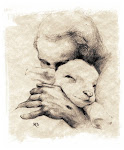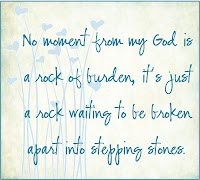
Why You Should Be Suspicious of Stories About Grief & Healing
Yesterday a good friend of mine posted this video of Tyler Cowen, an economist, speaking about why we should be suspicious of stories.
Tyler’s point:
Stories make a messy reality seem neat, purposeful, meaningful, and that’s one of the reasons why our brains love stories. But the problem is that reality is actually very messy, complex and diverse. Stories are always abstractions and they always leave stuff out, in order to have their neat arc. Tyler explains that there really are very few story structures – the details may change so that it sounds like a new story, but every story has one or more of these themes: someone on a journey or quest, good vs evil, trial and triumph, or a stranger coming to town.
Tyler’s suggestion is that the more you like a story, the more suspicious you should be of it. He says that if you like the story it’s probably because it’s conforming very well with one of the few story structures and this means that it’s probably an over-simplification of our messy and diverse reality so there’s information missing and you’re running the risk of making decisions that are a response to an illusion rather than actual reality.
When stories get in the way of our grieving
One of the things that came to mind when I watched this was that perhaps this explains why some of the theories of the psychology of grieving have been so broadly accepted in the past, in spite of their lack of scientific evidence. Theories like Freud’s concept of “grief-work” and Kubler-Ross’s theory of the 5 stages of grief present grieving as a neat story – a quest where the griever has to complete certain tasks in order to achieve peace, or a journey that takes the griever along a road that has a predetermined itinerary. These are nice, neat stories, so our brains grab at them, easily understand them and remember them. Grieving really breaks our illusions of certainty. The groundlessness and truth of the many mysteries of life that death and grief shows us can be quite unbearable, so we’re often even hungrier for nice, neat stories when we’re grieving.
Personally, I think that the grief-work and 5 stages stories are not useful stories in grieving, and they can even be harmful. The story of grief-work affirms the idea of some sort of penance being required in order to heal, which makes loss and grieving seem like a shameful thing. The 5 stages story can be harmful because it presents grieving as somewhere to get to and something to achieve, which means that where and who I am right now is not good enough. And since most people experience more than just those 5 emotions and don’t experience them sequentially, a person using the 5 stages as a roadmap for their grief journey would be likely to come to the conclusion that they’re not doing grieving very well. These are all opportunities for shame.
Probably the biggest problem I have with the 5 stages theory though is the fact that it presents “normal grieving” as a wholly negative experience. By not mentioning any so-called “positive” emotions, it affirms the idea that it wouldn’t be normal to feel peace, love, generosity, appreciation, clarity and other positive emotions that are actually really common, even immediately after a significant loss. When people don’t expect to feel any of these positive emotions after loss, they either don’t notice the positive emotion when it arrives (and since noticing emotions reinforces them, these emotions don’t get reinforcement and they don’t expand), or they feel guilty for experiencing these emotions – for smiling or laughing so soon after a terrible loss, or for finding themselves in love again so soon after a partner has died. Again, these are triggers for shame.
These aren’t the only restrictive or harmful stories in the world of grieving – there are plenty more! And it’s not all a story of “good-vs-evil” stories. A story that feels good for you might feel restrictive for me, and vice versa.
When stories help us return to resilience, resourcefulness, creativity and wholeheartedness
As Tyler explains, we can’t NOT do stories. Our brains process information in the form of stories and we’ll never get away from that. And that’s okay, because stories are like knives – they’re not innately bad. They’re really powerful implements that can be used either for harm or for surgical repair.
Stories are how we make sense of the world and they can offer us comfort, purpose and meaning after loss. Stories are also a way that we connect with each other and connection is one of the quickest routes back to resilience, resourcefulness, creatvity and wholeheartedness.
What’s important is to recognize that this is how our minds work – that we’re susceptible to believing information that’s presented as a story – and to also realize that stories are not truth, even though they feel like they must be true. And if they’re not true, then we can choose to discard the stories that aren’t making us feel good.
When we understand that the reality of grieving is not a neat story, but a messy and diverse experience instead, this opens up far more options to grieve (and live wholeheartedly after loss) in the unique way that feels right for each of us. It also opens our minds to the diversity of life and the deep understanding that, even after a significant loss, reality shows us that not all is lost or awful – life is both loving and losing, both awful and awe-filled. And it opens the way for us to discover new truths – truths that haven’t been highlighted in the stories that we’ve been hearing and telling about death, loss and grieving.
My favorite part of his presentation is at the end, where Tyler says, “Be a little more messy.” He tells us to work at being more comfortable with being “agnostic” in all areas of your life. He asks us to embrace “epistemological hovering,” messiness, incompleteness, and “not-everything-ties-up-in-a-neat bow.” If your grieving feels messy, incomplete, or meaningless, don’t shame yourself about it. It’s not meant to be anything else. Don’t believe the over-simplified stories of loss and a “good vs evil” encounter or the stories of grieving as a quest with tasks to achieve and some place to get to. Embrace the messiness, the uncertainty and the mysteries of life without requiring them to conform to simple stories and you’ll feel the weight of shame and stress lift and realize that shame and stress was the cause of much of the suffering that you had thought was caused by grief.











































No comments:
Post a Comment